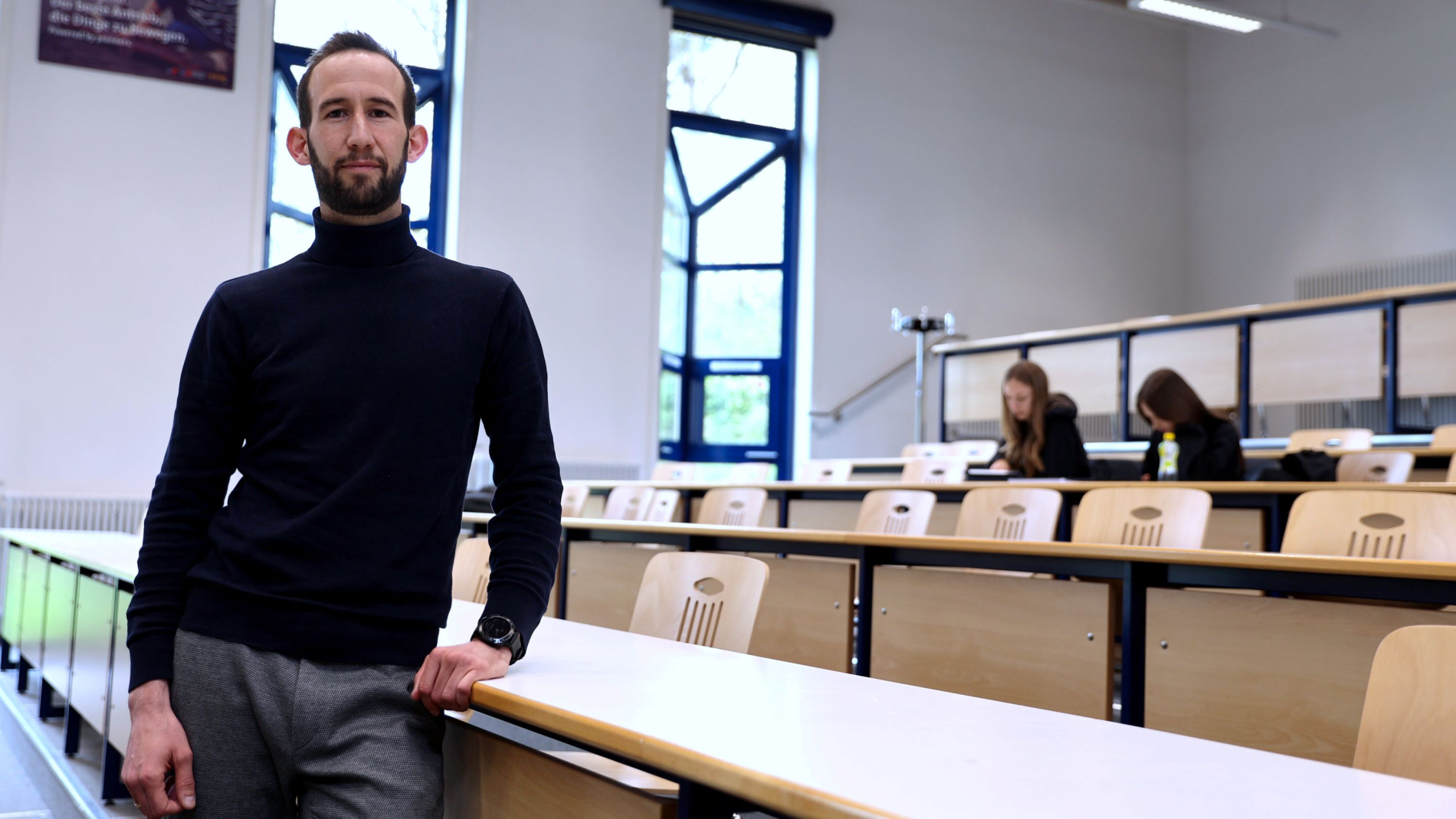
On April 3, a workshop on the topic of process mining was held at the Faculty of Technology and Management. One of the guests was RWU graduate Andreas Werner, who reported on his experiences with this methodology. He works in process management at the pharmaceutical service provider Vetter in Ravensburg. We had the opportunity to talk to him briefly afterwards.
Mr. Werner, what did you study at RWU? How well did you feel this course prepared you for starting your career?
I studied business administration at RWU, but after my Bachelor's degree I was still a little unclear about which direction I wanted to go in. I had a set of methods in my hand, but I didn't yet know what I really needed from them. Back then, I never thought I would end up working in an SAP implementation team. I would say that the preparation was good because I mastered it well. Of course, it's always up to you to apply what you've learned. I then completed a part-time MBA at RWU in 2018.
What was it like to return to your former university as a lecturer and why did you decide to do so?
I had already toyed with the idea of giving lectures here at the university. But it hasn't happened yet. It was a strange feeling because it's been five or six years since I last sat in this hall. But it was fun. Even as a student, I found the presentations from the practical areas extremely interesting. It just makes the whole thing more accessible. Of course, you also need the theory, but it gets dry relatively quickly. In my opinion, the relatively small university offers great added value here: the groups are small and you are always close to the practical side of things.
You are currently working for Vetter. What is your job there?
I work in process management there. Before that, I spent many years working on SAP implementation and the associated processes. I helped set up the process management department at my previous employer and later headed up the team. It was there that I first came into contact with process mining. My experience in these two methods, process management and process mining, led me to Vetter last year.
What is process mining all about?
As early as the 1990s, there were ideas about how to better link the interaction between data and processes. What we call process mining today is a method of extracting so-called digital footprints from systems. These different points can be linked together and presented graphically. I get an overall view and can see how the process actually runs through my systems. Reconstructing business processes on the basis of digital footprints is of course much more concrete than simply making assumptions about the actual processes.
What conclusions do you draw from these findings?
The conclusions I draw depend on my goals. First of all, this approach creates transparency. In the next step, it can be used as an analysis tool for optimization processes. The question is then, what do I want to look at specifically? As a rule, I define KPIs that I use to control the process at hand. I then pick these up again in the analyses in the process mining tool and can see how far away I am from the targets I have set. In the next step, I then have to derive optimization potential. Here, for example, I can identify activities or loops that I don't actually need. I can eliminate these and see the effects directly in the process mining tool.
Who is responsible for interpreting the data?
Data interpretation is ultimately an interplay between a wide variety of players. We rely on a core team made up of departmental experts, controlling, IT and process management. There are now various AI solutions on the market for this, but they do not always deliver satisfactory results due to the specifics of the company. This is why we at Vetter continue to rely on the expertise of our colleagues.
Are the processes in a company of this size still manageable without such a system?
Yes, yes, but I think it is much more difficult to carry out analysis or optimization initiatives because without a process mining system I am dependent on the subjective impressions of the people involved. With process mining, there is no longer any room for interpretation. It makes many discussions easier, I can show how the process actually works, in black and white. Objectification makes the cases indisputable.